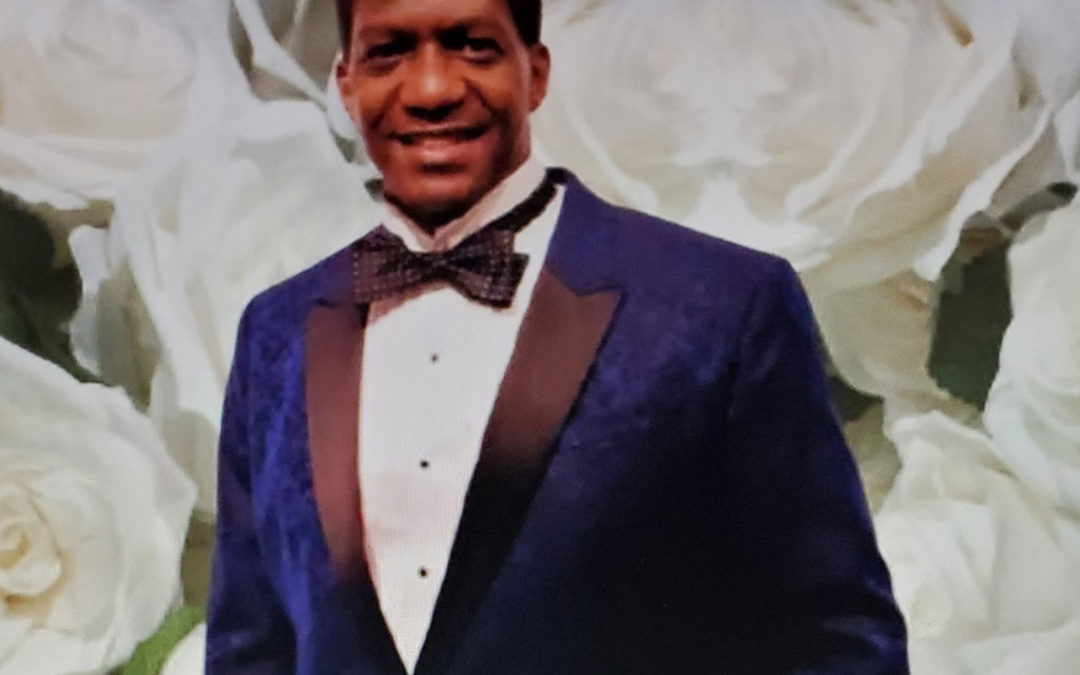
by Robert Bowie, Jr. | Oct 19, 2021 | Man Machine, Personal
For the blog today I am simply posting the memorial information for Van Dirk Fisher. Those who can attend should if they can and if not please consider joining me by sending a donation to Pamela Fisher, Van’s sister, via Zelle as posted in the invitation posted below.
Homegoing Celebration
Van Dirk Fisher
Saturday, October 23, 2021
10:00am Special Tribute by Family and Friends
(2 minutes per person)
11:00am – 12:00pm Memorial Service
The Abyssinian Baptist Church
132 Odell Clark Place
New York, NY 10030
In lieu of flowers please send donations to Pamela Fisher via Zelle to (917) 640-5731
Limited in-person seating – Virtual service available @ abyssinian.org
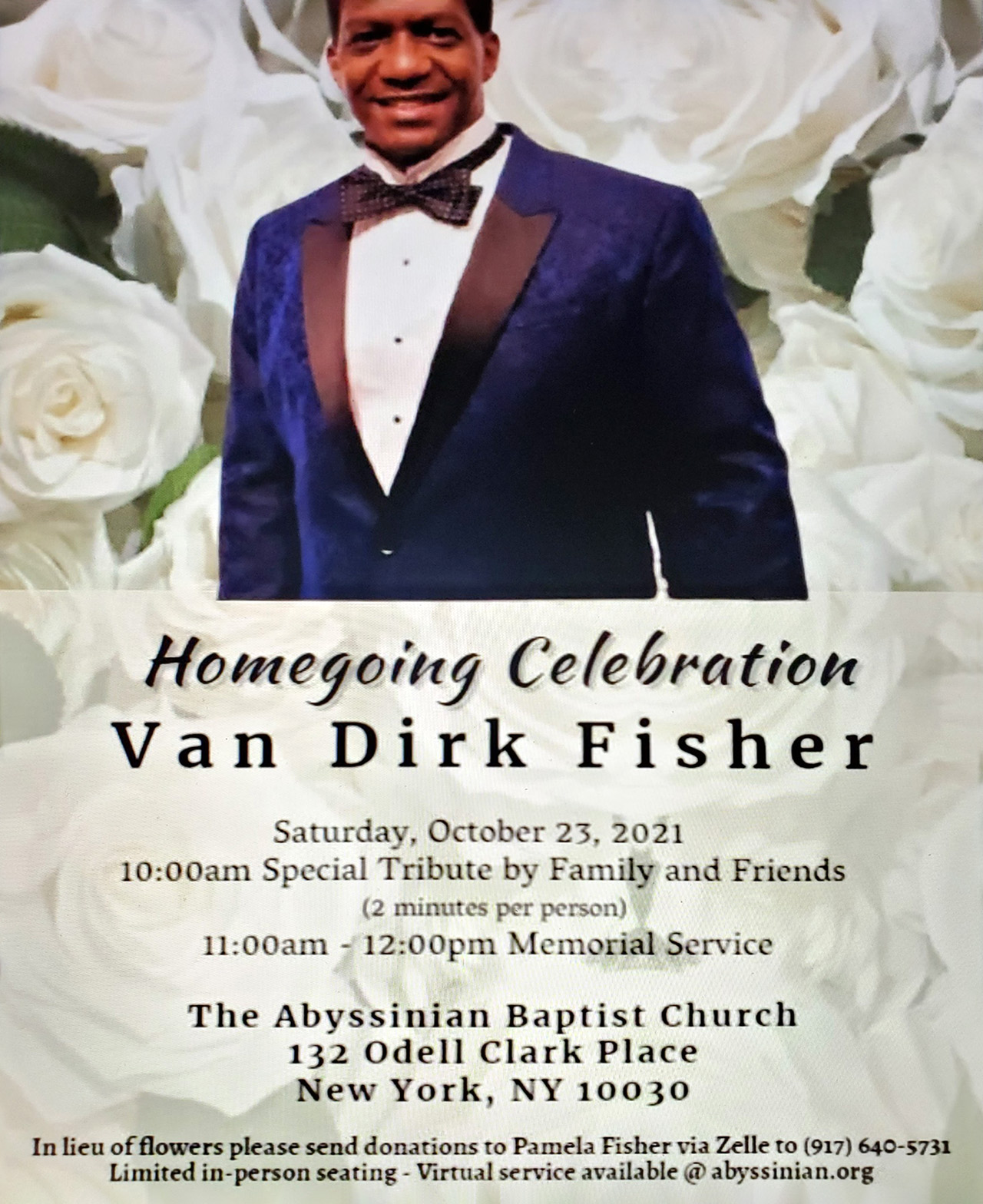
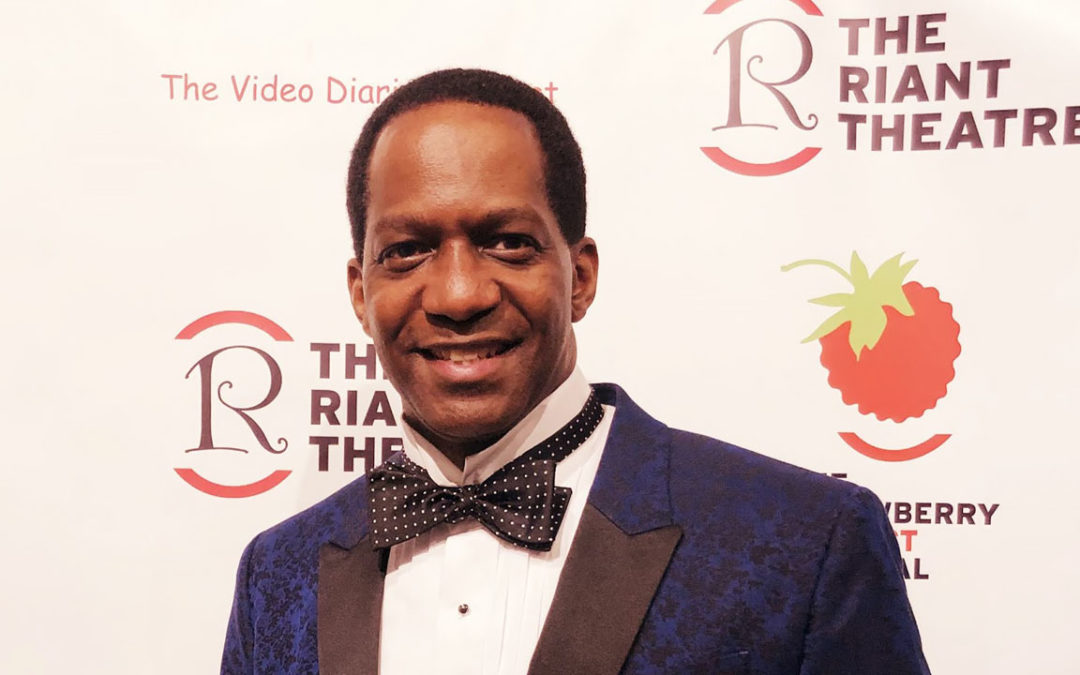
by Robert Bowie, Jr. | Oct 12, 2021 | Featured, Man Machine, Plays
Six months after the pandemic shut the New York theaters in March of 2020, I met a remarkable man, Van Dirk Fisher on an introductory Zoom call.
He had chosen my play, The Grace of God & The Man Machine, for a virtual performance at The Riant Theatre.
From the start, I was skeptical about a virtual performance, but I was impressed by Van’s tenacity and remarkable creative energy.
He would not let me say no. Less than a month after that call — and a year ago this October 25th — Van directed a highly creative virtual performance of the play.
The producers and I watched him direct the brilliant cast he had assembled and shape the virtual performance. He completely understood the play and he almost seem to inhabit it.
The following Tuesday after the performance, I dedicated a blog to him. I said:
This new format was advanced by a remarkably effective merger of the immediacy of live theater and the dramatic impact of the cinematic closeup.
Director Van Dirk Fisher and the Riant Theatre placed virtual backdrops behind the actors and the actors, all separated and in some cases in different states, reached out and past a joint between each other and exited and entered as they stepped in or out of the camera in front of which they performed alone.
The reading took on an immediacy that a staged reading cannot provide, but the degree of difficulty remained almost unnoticed for an audience which tuned in from New York to California.
Judging from the chat rooms and the talk back after the performance, it was a huge success.
The producers were so impressed by what they had seen they immediately bet the farm and asked him to direct the future off-Broadway production.
We had only met him in Zoom meetings. He was that impressive.
Last Friday, nearly a year later, finally I received a text from the producer telling me it would finally happen. The Grace of God & The Man Machine would open this spring off-Broadway. We were off and running and finally we would be working with Van in person.
Two days later I was surprised by a text message from Van‘s sister:
“Van passed yesterday at 3:49pm.”
When I called her in disbelief, she told me December of last year, he had been diagnosed with stage four stomach cancer but had fought it and continued to work.
A month or so ago, I contacted him to see if he was interested in working on a new play. He never revealed that he was sick.
Just as American theater is opening up and finally recognizing Black creators, this man and his future audiences will be deprived of his chance to show his considerable gifts.
I would be willing to bet that up until the very end, he believed he was going to beat cancer because that’s who he was.
When this play goes up off-Broadway, there will be a tip of the hat in the program to him and his indomitable spirit.
I only knew him through Zoom calls but now he won’t even be there for us virtually. I never got a chance to meet him and shake his hand but I know he will be there with us when the play opens.
He will be with us live!
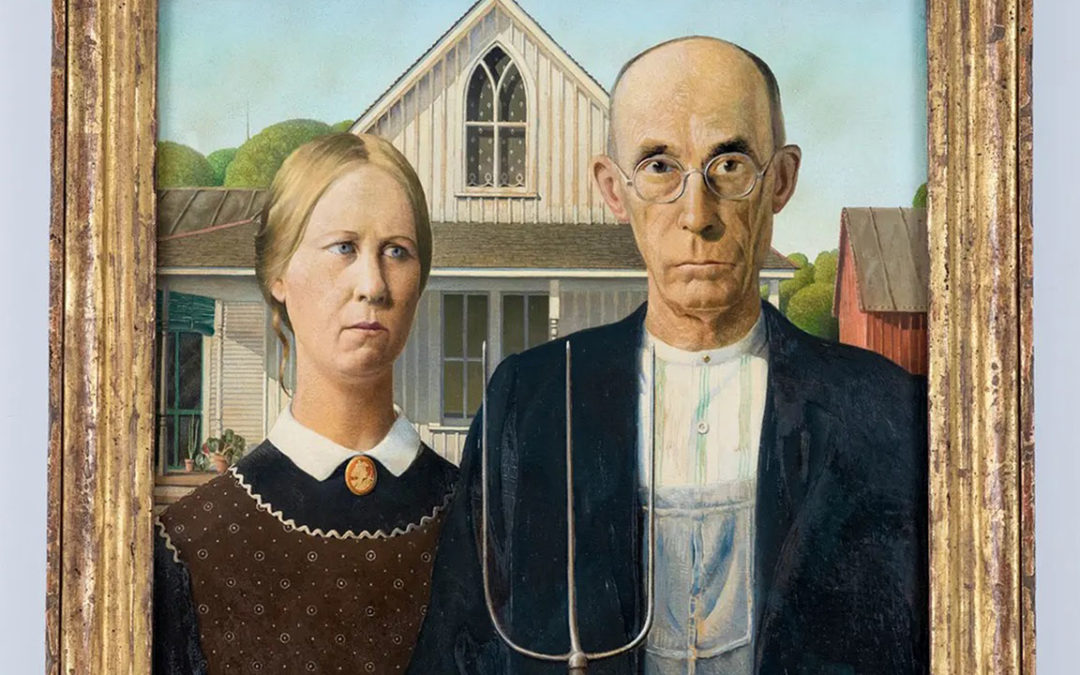
by Robert Bowie, Jr. | Oct 5, 2021 | Featured, Personal, Politics
New Hampshire’s motto was and remains “Live free or die.” Back in the early 1960s, when I was ten, I came to believe it was America’s promise to itself.
My parents took the family to the White Mountains in the wilds of the Presidential Mountain range, to a tiny house that looked up into Tuckerman’s Ravine near the little town of Randolph in northern New Hampshire.
The morning after we arrived, our family dog came back after a night out with a mouth full of porcupine quills.
When we arrived the night before, we had discovered that the only phone was affixed to the wall in the kitchen and was a party line. So, the next morning, we had to ask the operator to give us the number for the veterinarian and we had to count the rings to know if her return call was for us or someone else when she connected us.
We soon learned that the party line did not stop people from picking up the phone and eavesdropping. My father would preface a conversation by constantly asking “please get off the line… Please get off the line.” Eavesdropping on the phone was a social event but — when requested — the clicks could be heard and the line would become clear. It was part of the social code.
The other notable social activity in Randolph was the picnic on the 4th of July where everyone in the community, including us, enthusiastically gathered to play charades. The charades were just an icebreaker to encourage interaction and conversations between strangers. All the eavesdroppers must have been there, but I remember that everybody was welcome to celebrate our democracy in that community.
As I grew older and watched the passage of civil rights legislation and protests to end the Vietnam War on black and white TV, and the rise of “Me Too” and “Black Live Matter” on the web, I always returned to my childhood memories and to that motto that I believed was America’s promise to itself.
I try to keep imagining what the residents of Randolph, New Hampshire back then would have done if the telephone company was quietly gathering everything from purchasing information to political beliefs to sell to secondary consumer markets and even to political parties, and if politicians used this information to make marketing calls, agitating these customers to increase profits.
So, must I now reconcile this my old memory of the respect for personal privacy, which was honored at the request of my father on a party line by our neighbors who also welcomed us into their picnics and to celebrate our democracy?
Would the citizens of Randolph have been quite as complacent as America is now?
Would they have required a whistleblower to go to Congress to explain Facebook‘s assault on their privacy?
No, that’s been obvious all along.
Would they need a whistleblower to explain that Facebook has, for its own gains, divided the country as a platform for false information of all forms in the name of more corporate profits, despite the damage it may have done?
No, that’s been obvious all along.
I have to get over my childish imagined ever-growing flotilla of tractors with extra pitchforks for other patriots rolling out of Randolph, gathering in its assault on Washington.
I have to get over my childish imagination that they would have already left town and gone to defend the Capitol back in January after it was assaulted.
They would be there, defending the Capitol, and who knows? Once they figured out what was happening, perhaps they would’ve attacked the White House. Or maybe they went down to protect voting rights or protest political parties that grow more radical, unifying a misinformed public in order to maintain their own political power.
Once I gave up these childhood memories it is now good to realize we struggle everyday to be free. It is the imperfect process which we must follow. It is what we must do.
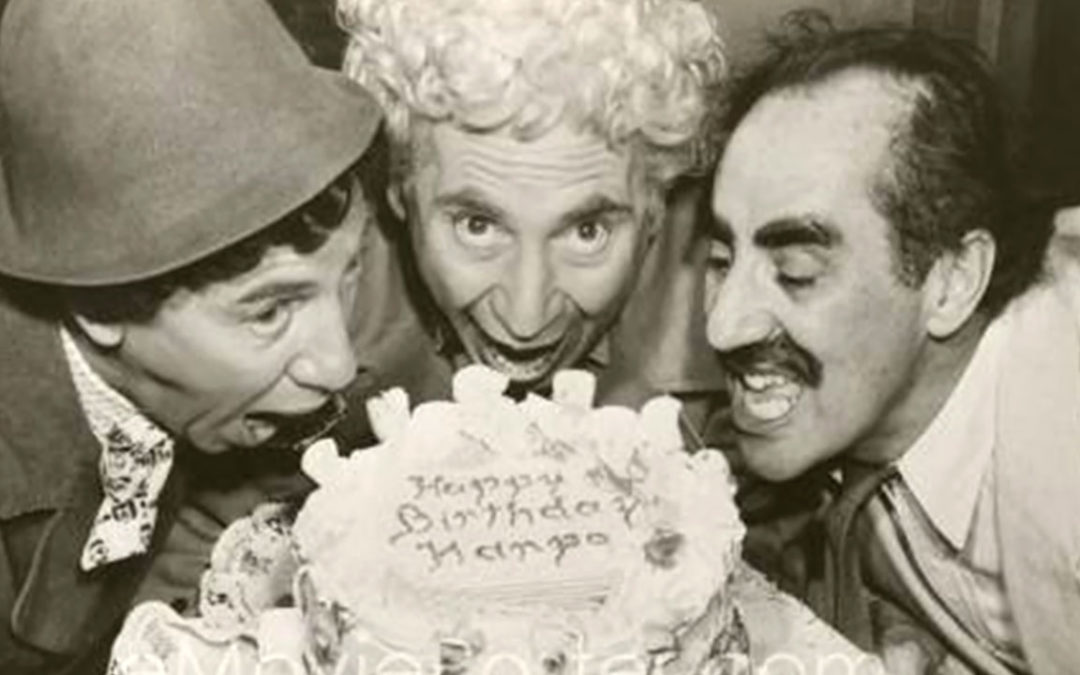
by Robert Bowie, Jr. | Sep 28, 2021 | Featured, Personal
The kindnesses of the birthday wishes which I received on the 24th are much more appreciated than might be immediately obvious.
I want to briefly express my gratitude.
Facebook was an afterthought to promote an unlikely second career as a professional playwright and poet, which I have always half dreamed about but never had the courage to expressed to others.
When I started on this new career I fully recognized that the biggest problem I had was I had little or no credibility in this my new profession.
I had wonderful friends from high school and college but they were scattered across sixty years and several continents and I had wonderful friends from my prior career. I also had the invaluable friends I had made from the Baltimore theater community as a board member and amateur Playwright.
My Tuesday 3:00 pm (ET) Facebook posts and a webpage, created by new friends, developed into a blog, Instagram and Twitter accounts. Over the last five years I have been able to gather with my old friends and meet new friends in this new world which I would never have met but for these platforms.
Slowly over the last five years the unexpected has happened. I have received support and welcome criticism and the credibility I had hoped for because of the friends I have made or remade here.
I am very fortunate, because of you, to be happily living that dream I was previously too shy to express.
Thank You!
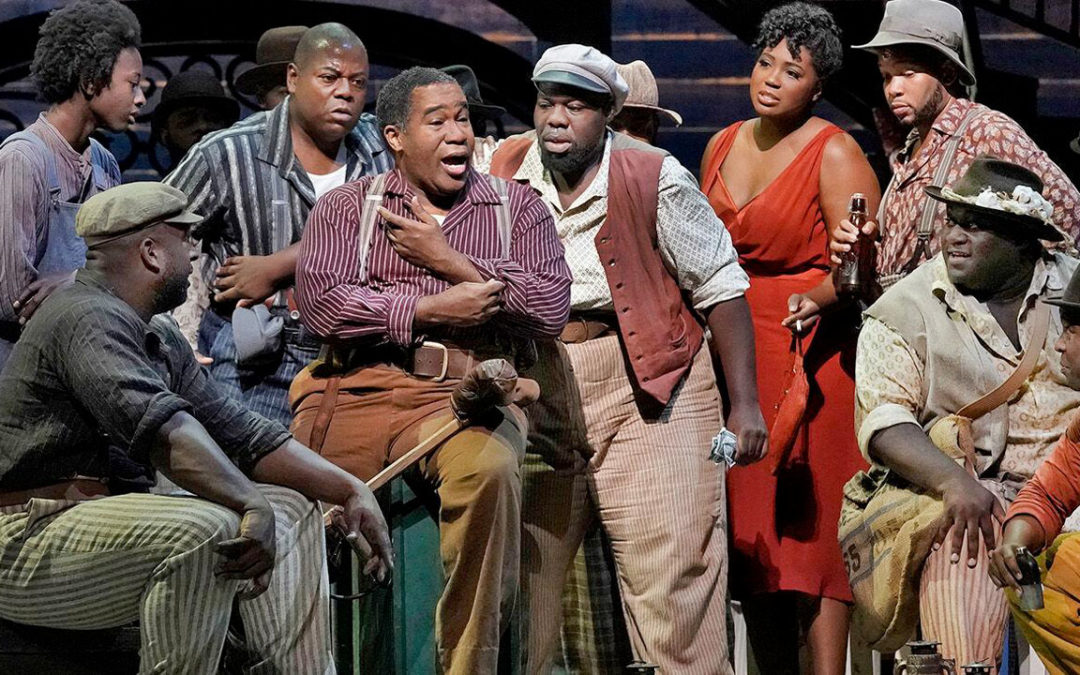
by Robert Bowie, Jr. | Sep 21, 2021 | Featured, Plays
Let’s first be grateful, and then let’s take this apart piece by piece.
Last Sunday The New York Times theatre section reported that seven plays by Black authors would open on Broadway this fall: “Chicken & Biscuits,” “Trouble in Mind,” “Lackawanna Blues,” “Clyde’s”, “Skeleton Crew,” “Pass Over,” and “Thoughts of a Colored Man.”
Broadway’s pre-pandemic theater season featured two plays by Black authors. The previous season, there had been just one play and in the season before there had been none.
All seven plays in varying degrees have been time tested off-Broadway, whether it be recently or in the past. They are all interesting and worthy based on their past history and past reviews. With the exception of Lynn Nottage, who is a two-time Pulitzer Prize winner, they all offer new voices about the human condition.
The article wondered whether this trend to welcome Black authors would continue. The fear is that Broadway’s traditional white audiences would not attend these plays and thus they might fail financially.
Historically, something like only one out of five Broadway plays ever recoups its expenses.
To produce a play on Broadway is extremely expensive. The New York Times article reported: “According to filings with the securities and exchange commission, ‘Thoughts of a Colored Man’ is costing up to $5 million to mount; ‘Chicken & Biscuits,’ up to $3.5 million; and ‘Pass Over’ up to $2.8 million.”
Also, it would be easy for those who want an excuse to blame the lack of attendance of Black audiences. The Times reported: “In 2018-19, 74 percent of theatergoers were white, and 4 percent were black, according to a demographic report by the Broadway League, a trade association representing producers in theater owners.”
Theaters rely heavily on tourists for ticket sales and all these plays come to Broadway under the threat of the pandemic.
But this may not be an appropriate way to measure success or failure for these plays or their authors.
If these seven plays and their authors do not succeed according to Broadway standards, they will nonetheless have received the blessing of the Broadway brand and will have the afterlife and influence of future performances in one of more of the 74 regional theaters in 29 states and the District of Columbia.
Regional theaters rely more on seasonal subscribers who love theater and remain more open to new works, particularly if they have been blessed with a Broadway production.
Everyman Theatre and Center Stage in my hometown of Baltimore have regularly contributed to putting on such a new works, but now it will be safer for them to continue doing so.
For these playwrights, this new visibility will offer a brighter future for their future works.
Of course, the greatest benefit is for us, the theater-going public, because these new playwrights will finally be able to introduce new stories from a different perspective about our human condition.
Theatre is different than almost any other art form in the way it communicates and has impact. It is a staged conversation which is also a conversation between the stage and the audience. It is powerful because it is intimate and live.
Perhaps these are the conversations that we have been unable to have in a polarized country.
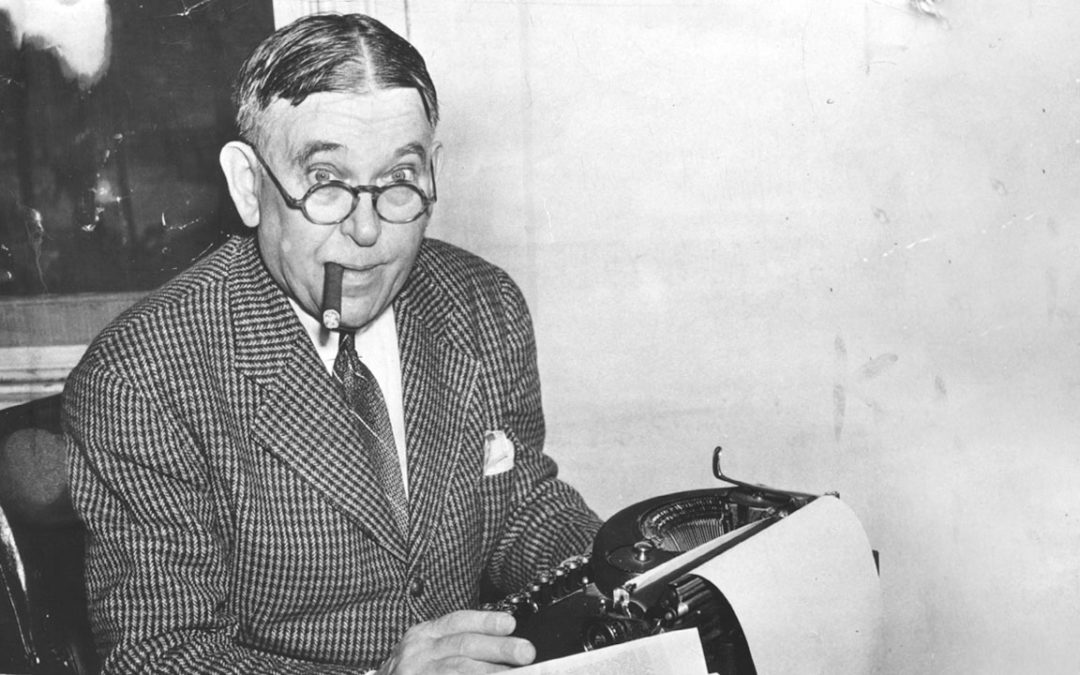
by Robert Bowie, Jr. | Sep 7, 2021 | Featured, Politics
“The whole aim of practical politics is to keep the populace alarmed (and hence clamorous to be led to safety) by menacing it with an endless series of hobgoblins, all of them imaginary.” — H. L. Mencken
September 12 is H.L. Mencken’s birthday. He was a wonderful provocative opinionated Baltimore Sun newspaperman who was definitely not politically correct and loved to piss off everybody. Times such as these require we celebrate six days early.
Though I could never match him the only way to celebrate him is follow his lead. Please accept this as all in good fun.
My celebration is in two parts.
Part 1
Extra! Extra! Read all about It! Where in the Constitution is the freedom of choice?
“Democracy is the theory that the common people know what they want, and deserve to get it good and hard.” — H.L. Mencken
Let us first consider American “freedom of choice,” which has been heavily relied on by anti-vaxxers and the intellectuals on Fox News.
Let’s start with a little history. In the mid-1950s, my mother joined all the other mothers back then who lined up their children for the new polio vaccine and thereafter for mumps, measles and who knows what including all kinds of booster shots. It was so long ago there were “pin cushion” jokes. Back then, people had sewing machines and pin cushions.
Yes! These were the days when tattooed people were not afraid of needles and vaccinations were not considered to be secret government IQ tests.
It wasn’t perfect but I am sure that many of us are alive today because our “Rosie the Riveter” mothers, fresh from their patriotic duties and the sacrifices of the Second World War, grabbed their first graders and put them in line.
It was a civic duty that their children were safe and also were not spreading any infectious diseases. I guess today they would be blamed for not looking out for #1.
This is not to say I have given up on the present.
I was very happy when almost every anti-vaxxer to whom I talked refused to tell me where this “freedom of choice” is located in the Constitution. But was saddened that nonetheless they said it was “in there someplace.”
Unfortunately, after a careful review of the Constitution, I discovered “freedom of choice” is in fact from a short-lived Burger King advertisement. The fact that it was short-lived seems to indicate that most of these Americans preferred uniformity in their Whoppers.
When I argued that perhaps freedom of choice at least requires a concern for others and it was inappropriate to disseminate misinformation and cited my mother as an example, I got nowhere.
For my back-up authority for both proposals I asked If they recognized these names: Marc Bernier, Dick Farrel, Tod Tucker, Jimmy DeYoung Sr., and Phil Valentine? I pointed out that they had two things in common: they have all made a fortune as anti-vaxxer talk show hosts and they have all died of COVID. I can’t even imagine how many people they took with them, as the numbers continue to multiply.
Part 2
Extra! Extra! Read all about it – Are we back to deputizing bounty hunters?
“There is always an easy solution to every problem — neat, plausible, and wrong.” — H. L. Mencken
As you already know by now the Supreme Court’s decision last week finds no constitutional problem with Texas bounty hunters receiving up to $10,000 for reporting anyone who “aids or abets” an untimely abortion.
The Court’s decision sidesteps the right to privacy of a woman which remains constitutional in Roe v. Wade but lets stand that bounty on anyone, including nurses or doctors, who make any effort to help her.
These developments will be obviously universally supported by our fellow Americans since recently we love and elect presidents that have acted as cowboys in the movies or have been on reality TV.
Nonetheless, I think that the current Supreme Court is showing us the way to solve all of our current problems if we just support the constitutionality of this decision and embrace its wisdom.
There seems to be no constitutional reason we cannot employ bounty hunters to ensure our personal freedoms, cut unwanted government protections, and also cut taxes.
Consider traffic safety. What a wonderful way to get rid of police expenses and cut the costs of enforcement. We can eliminate road rage by merely reporting on bad drivers and collecting the bounty.
Our federal and state highways could be a reenactment of the carnival game Whack-a-Mole or a video game and advertising will increase substantially for drive time traffic updates. It will be great for business and prevent us from having to raise the minimum wage.
This opportunity has no limits! We can finally all be safe if we each are bounty hunters reporting on each other for any violation of any law. There may be one problem though: how do you collect the bounty if there are no police to enforce it?
But once again the current Texas Republican Party and the current Supreme Court helps us understand that the second amendment has been there all along. We the people finally will be the “well-regulated militia,” which the Supreme Court has previously ignored.
If you think about it, we can even eliminate election fraud if “we the people” police them. We can ensure fair elections and “stop the steal” if we have televised shootouts between the candidates.
Let’s give credit where credit is due. These are the new breed of Trump Republican that have modernized the party. Completely different than my old Republican heroes like President Eisenhower, Chief Justice Warren, or Senator Charles Mathias for whom I was proud to have worked for when people from both parties worked together for the good of the nation. But that was the old Republican Party.
I apologize. Mr. Mencken made me do it. He was born in 1880, so on September 12th he would have been 141 years old and almost half the age of our country.
“If, after I depart this vale, you ever remember me and have thought to please my ghost, forgive some sinner and wink your eye at some homely girl.” — H. L. Mencken
I am not worthy. He was politically incorrect but he still can shock you and make you laugh. Hats off to my friend David R. So, let’s get this party started!
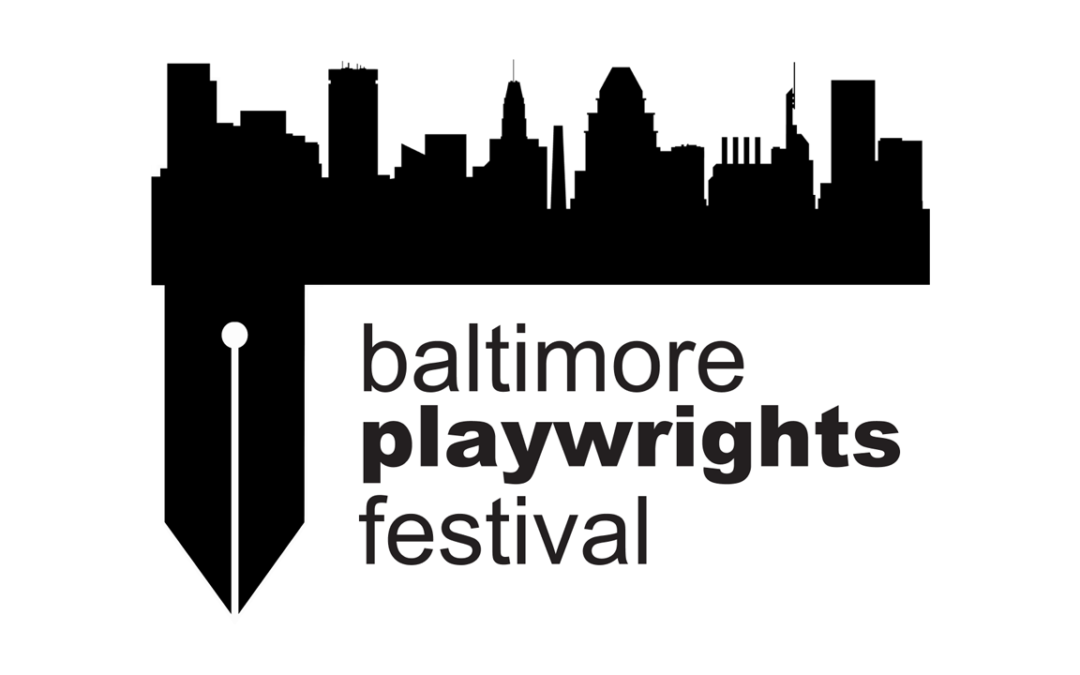
by Robert Bowie, Jr. | Aug 31, 2021 | Featured, Plays
Baltimore is a great theater town but sometimes you have to leave home to appreciate it. It offers way more access and opportunities than the theater world recognizes.
Last week, I traveled to New York and stayed at a hotel in the East Village across the street from the Village Voice. The hotel had floor-to-ceiling windows which overlooked the street. The incoming students at Cooper Union and NYU were just getting to know the city and each other as they moved through the late summer heat. The mask requirements had been reinstated for indoor spaces, but you could feel the city coming back again and, with it, a flood of joy and happy memories.
One late afternoon a few weeks before the pandemic, after a table read of The Grace of God & The Man Machine, I was drinking with the actors at The Triple Crown at 29th and 7th Avenue, a semi-dive next to The Opera Center offices where the reading had taken place.
I was bellyaching about being a geezer, starting my career as a fledgling writer so late in life. Two beautiful things happed almost simultaneously.
First, several of the actors, who, in some cases were easily half my age, somewhat seriously, told me to “shut up and grow up.” They had no pity for me, they told me unceremoniously. They were trying to make ends meet and support a family as they pursued opportunities in order to learn their craft and develop an acting career. Meanwhile, I was able to write all day and still cry in my beer. Second, they buttressed their argument by reminding me of something I had just told them moments before. I had apologetically said I have had 10 plays performed in the little theaters in Baltimore.
It was all true. I had taken it for granted. Baltimore from top to bottom is an oft-unrecognized theatre town full of opportunity. At the top, The Everyman Theater and Center Stage are nationally recognized and Everyman stands out because it has built a company which supports its actors and offers its audience the chance to get to recognize these actors.
The theaters such as Fells Point Corner, Audrey Hermann Spotlighters, The Vagabonds, Theatrical Mining Company, and others produce monthly shows at reasonable admission prices and offer competitive opportunities for actors, directors, stage designers and techs young and old. For over 25 years, they have sponsored the Baltimore Playwright’s festival, which pays burgeoning playwrights a small stipend and offers new work and summer performances.
But perhaps even more supportive are professional theater critics, such as Judy Rousuck, who have covered the Kennedy Center and the Baltimore regional theaters for years, and have also gone out of their way to cover the little theaters as well, reviewing them in The Baltimore Sun and WYPR radio, the NPR affiliate.
I had never really recognized the greatness of Baltimore theater and how much I had benefited from it until I left home and abruptly recognized the good fortune and education I had received at home.
How odd that the rebirth of New York theater would bring me back to my genesis in Baltimore. I have nothing but love and appreciation for the place and the friends and mentors I have made and found there.
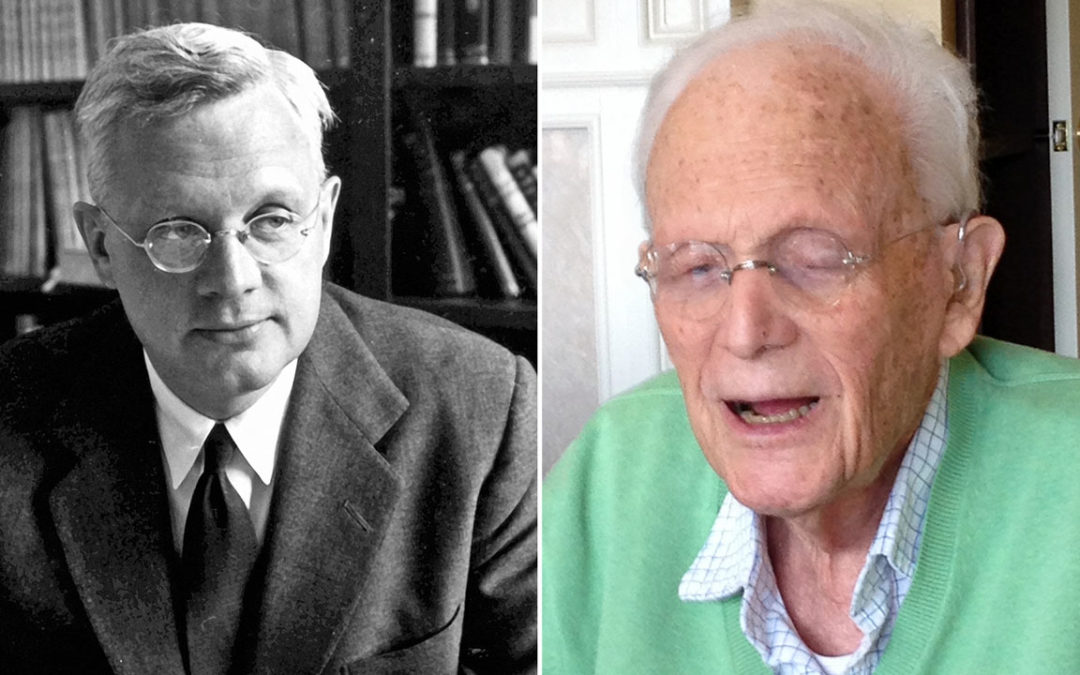
by Robert Bowie, Jr. | Aug 24, 2021 | Featured, Personal, Poetry
Today is my father’s birthday. He was born August 24th, 1909 and died November 2nd, 2013. Somehow my love and respect for him continues to grow. It happened over time but it is much like what Mark Twain said:
“When I was a boy of 14, my father was so ignorant I could hardly stand to have the old man around. But when I got to be 21, I was astonished at how much the old man had learned in seven years.“
Imagine how “astonished” I was by “the old man” after I had continued to witness his learning as he passed 100. He set the standard. He told me one time, “I love you, but I don’t respect you.” He was right. He was always razor sharp and I grew to want his respect.
He had been first in his class in everything he had ever done and could cut through the fog to get to the heart of an issue with a single lightning bolt comment, but the real reason I thought so highly of him was I saw him choose to live with determined integrity.
During the last 15 years of his life, he lived in a retirement home near where I worked. The other old men on his floor gave up shaving for weeks but I would always shave him before he would leave his room as my show of love and respect. I would visit him every afternoon and wheel him into dinner unless I was in a trial or out of town.
In the mid-1990s, in yet another effort to win his respect, I enthusiastically informed him that this new Internet thing would open us to world peace. He smiled and said, “probably not that easy.” He was right and I was flat on my face again. I could only think of what he must have thought of me in my teens during the “don’t trust anybody over 30” period.
I was the worst kid ever. I had undiscovered learning issues back then, and well-developed disciplinary problems. I kept getting thrown out of school and — to make things worse — I would disappear to hitchhike through at least 40 of the states.
One time when I was heading back to Maryland, I called home from a payphone in a Howard Johnson’s south of the Chicago because a driver who picked me up bribed me with food if I would call my parents to tell them that I was coming home. My mother answered the phone and could not stop crying because she said she had been so worried. Despite my misspent youth, my father and mother never gave up on me. I was their son despite my failures. They would do the right thing. That determined integrity was a commitment to love. I wanted to learn that.
One afternoon when he was 94, he complained of pains in his lower abdomen and after an ambulance ride to the hospital he was admitted to surgery.
As I prayed in an empty waiting room very late at night, I thought I was never going to see him alive again. On scratch paper I sketched out a sonnet of remembrance. I wrote it after they wheeled him out of the operating room.
My Father
In the end it’s touch that holds memory.
The other senses are immediate
And defend the present territory.
The other four are there to navigate.
Tonight my father went under the knife
And I waited alone with my cell phone
To see what would become of this one life;
Together, separate, and both alone.
For an hour in the last waiting room,
I remembered him as sound and insight,
Too perspicacious for the cool boxed room
That would contain him in this, his last night.
At ninety-four how could he have survived?
I kissed the forehead of a man, alive.
As he approached his 100th birthday, we were talking and he, almost as an afterthought, said, “I admire what you have accomplish with your life. I’m not sure I could have done what you have done.” I don’t think he ever realized that was the one thing I had always hoped to hear from him. Our last years together we’re perfect. He had never withheld love. I just had refused to accept its responsibilities.
Shaving My Father
(From a draft I wrote the day after my father’s death at 104.)
This is the last small room in which he will rest.
Every day I visit him at four o’clock.
We balloon the room with our forgiveness.
“Either this man is dead or my watch has stopped.”
Two men knock on his door then wait like guests.
“Not funny for a man this close to death.”
We share what only dark humor can express.
The Marx brothers, for both of us, are the best.
The electric razor hums in my hand
As it cuts along the cheekbone and the neck.
Like a harvester on pre-winter land
I harvest thistle from earth’s intellect
Across a snow bank of thin paper skin.
They zip their bag shut and leave me without him.
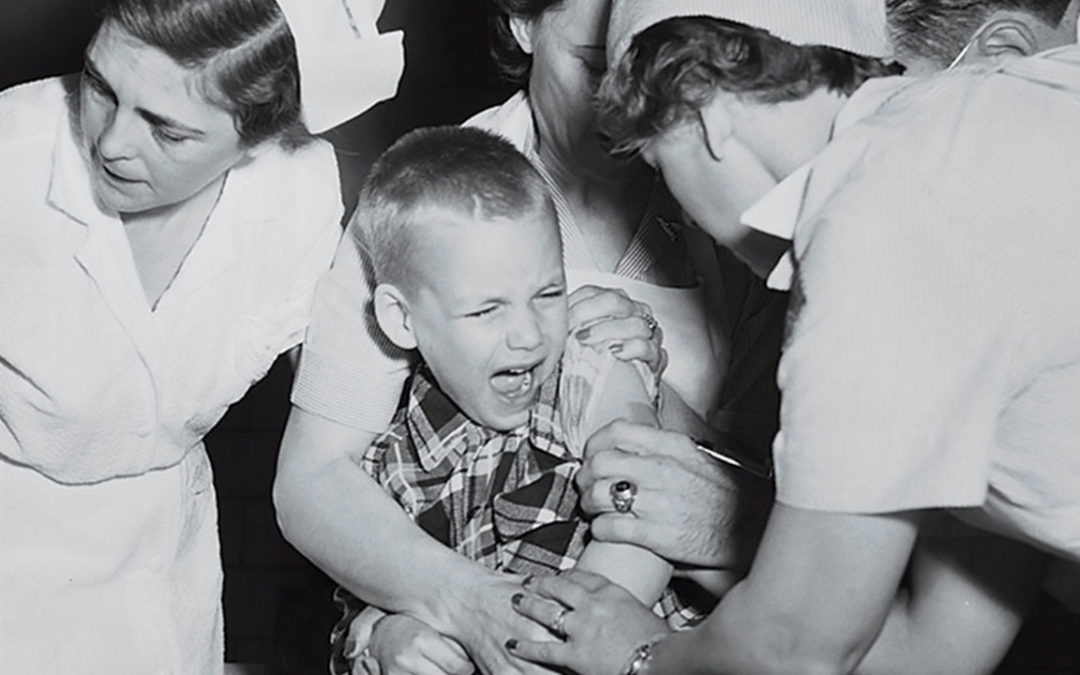
by Robert Bowie, Jr. | Aug 17, 2021 | Featured, Personal, Politics
I’ve got you beat! Have you ever been vaccinated for rabies?
Years ago, my young family was traveling back from Frederick, Maryland after the 4th of July when I asked my wife to pull over because I saw an injured baby raccoon by the side of the road.
I love all living things and most humans.
The little raccoon was so small it fit into the palm of my hand. I took it home that night, named her Thomas Jefferson — because it was the 4th of July after all — and started to feed her with an eye dropper.
I researched diet and organized my schedule to ensure regular feedings, but it was too late. Three days later, she started to die. Despite my efforts, somewhere around 3 o’clock in the morning she stopped breathing.
When I told my wife the next day, she was understandably horrified. She informed me that it was possible that I could have gotten rabies and I must get vaccinated.
I voluntarily got the shots and became the hero and laughingstock of my little neighborhood. They would turn to each other and point at me approvingly and say, “if you see a rabid animal call Bob because he can bite back.”
So why did I voluntarily get those shots back then?
I didn’t really volunteer to be the game warden for my neighborhood but I did not want to get rabies and I certainly didn’t want to involuntarily bite somebody.
I also wondered if rabies shots were mandatory. I was surprised to find that with the exception of Kansas, Missouri, and Ohio, every state in the union has mandatory rabies vaccination laws for domestic pets but apparently not for their owners. The success that public health officials have had in controlling rabies is due to vaccinating domestic pets.
But what does this say about my parents? I got vaccinated for everything! Did they treat me like a pet?
As a child, I had been vaccinated for typhus, measles, mumps, and polio, and our reservoir water had been treated with fluoride to save our teeth. All this in order to protect the living generation from the transmissions of death and worse, tooth decay. I remember there were protests against all of these vaccinations at the time.
Recently, it occurred to me: Why not smallpox?
Why didn’t our pets and I get vaccinated for smallpox? It must have been mandatory! Because of this oversight could I have accidentally passed on smallpox and kill somebody?
So, I did the research.
In Europe smallpox vaccination began in the early 1800s, after Edward Jenner did cowpox experiments, in which he showed that he could protect a child from smallpox if he infected him or her with cowpox blisters. Jenner’s ideas were met with immediate public criticism. The rationale for this criticism varied, and included sanitary, religious, scientific, and political objections.
What a wonderful surprise!
Almost two centuries after Jenner hoped that vaccination could annihilate smallpox, the 33rd World Health Assembly declared the world free of this disease on May 8, 1980. Many people consider smallpox eradication to be the biggest achievement in international public health.
I felt even better when I concluded that it was patriotic to be vaccinated.
René F. Najera, DrPH, the editor of the History of Vaccines, an online project by the College of Physicians of Philadelphia, reported that there is good evidence that the United States won the War of Independence because of vaccine’s precursor: inoculation.
Among the Continental regulars in the American Revolution, 90 percent of deaths were caused by disease, and Variola — the small pox virus — was the most vicious of them all.
On the 6th of January 1777, George Washington wrote to Dr. William Shippen Jr., ordering him to inoculate all of the forces that came through Philadelphia. As he explained:
“Finding the Small pox to be spreading much and fearing that no precaution can prevent it from running through the whole of our Army, I have determined that the troops shall be inoculated… Necessity not only authorizes but seems to require the measure, for should the disorder infect the Army… we should have more to dread from it, than from the Sword of the Enemy.”
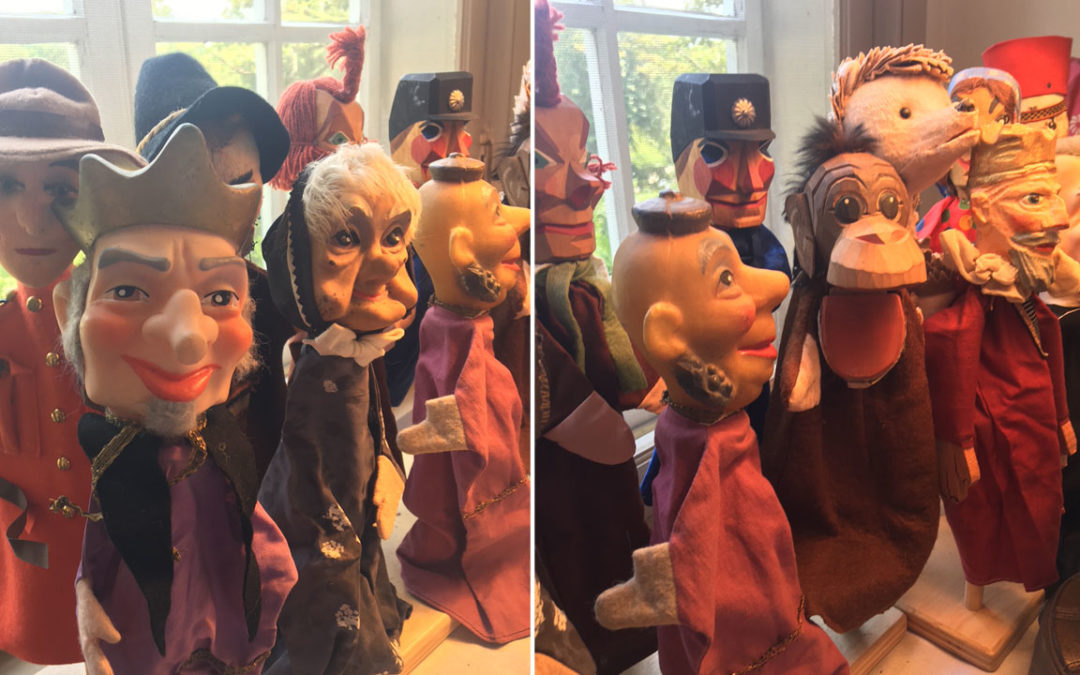
by Robert Bowie, Jr. | Aug 10, 2021 | Featured, Plays
I have always been a religious man.
I have always had a deep and abiding religious belief in delusions of grandeur.
This week, COVID and the new Delta variant are again threatening to curtail the opening of New York theater, and with it, so goes again my new play, The Grace of God & The Man Machine.
It is times such as these one must fall back on faith!
It is times such as these when I feel compelled to explain the basis for my belief in delusions of grandeur and why the hell I ever decided to write for the theater.
Is there no justice? I offer you, this, my theatrical pedigree:
My first big break in theater came in fourth grade at an all-boys school when the music teacher chose a friend and I to write the big closing song for our fourth grade graduation. The thespian spirit moved me! I insisted that we end this artistic opportunity with an emotional final line, a big crescendo, in order that we fully convey our deep love of fourth grade.
I was gunning for full tears from a breathless waiting audience of emotional parents as they heard that last line rising to its explosion of emotion with the piano teacher banging out the music as all my fellow fourth graders sang:
”… and we will always love fourth grade even when we’re dead and gone!”
There was stunned silence. There were no tears. There was an explosion of laughter!
That should’ve ended my career. But no…
By eighth grade, my fragile thespian spirit had revived. I had gathered a large collection of hand puppets so I offered to put on a performance for the entire middle school.
It would be a love story!
My mother had typed out my script but I could not read it at the same time as I was putting puppets on both hands. So, I soon abandoned the script and turned to all-out stage violence. I had the entire middle school with me all the way until I lost one of the fighting puppets over the edge of the stage and my puppet stand fell into the fifth grade.
I got my first bad review from a seventh grade teacher. He looked down his nose after everyone had left and asked me: “Where did you get your inspiration for that?”
My love story had unexpectedly turned into improv but it was my obligation to tell the truth. I think I told him I was writing, as all great writers do, from what I knew. I am pretty sure I told him: “Recess.” The show closed on my opening afternoon.
That should’ve ended my career. But no…
By high school, I had given up writing for the stage but still was not able to avoid further theatrical embarrassment. The drama teacher asked me to act what he called “a small part” in The Crucible by Arthur Miller.
Apparently the first choice for the part had dropped out. I had been given the first scene in which my character, the Reverend John Hale, first enters and I was told to read it for the tryout the next day.
I was surprised but flattered when, before the reading, I learned that I had been given the part. I was shocked that evening when I took home the script and found out that my character also appeared in the second act. The more pages I turned, the more horrified I became.
Not only did I embarrass myself on stage, I even embarrassed myself in the dressing room. Back then all stage actors, particularly if they had as many lines as I did, were “tall, dark, and handsome.” As I was putting on my makeup before opening night, the director stopped in front of me and waved his hands wildly and without a moment of kindness told me: “No! No! No! You don’t need a suntan. This is winter in New England.”
That should’ve ended my career. But no…
It got worse. I just couldn’t let it go. I started writing plays for the little theaters in Baltimore. After my first play, Oriole Magic, had been cast, I shared my high school disgrace with the actors, and told them how much I admired their talent because I had developed an overriding fear of acting.
On opening night, the director came to me and told me that the leading man had dropped out of the performance and that I had to take the role. I was beyond terrified. I now would be confronted with the most horrible nightmare I could imagine… I was about to forget the lines that I had written in front of a live audience.
I fled to the bathroom fully intending to lock myself in — but once I got in there, the lead actor, who I was supposed to be replacing, could not stop laughing.
So why do I keep writing for the theater?
I think the answer is I just want to be near it. There are so many happy memories. I wrote ten plays for the wonderful little theaters in Baltimore and though many were horrible, particularly the early ones, I was forgiven my transgressions and encouraged to write again and again. It is these people I remember with great fondness and respect.
Also, when I had difficulty with school, my parents helped me get through those times. They discovered my love for telling stories before I did. My father brought back hand puppets from his travels and built me a puppet stand in the basement. My mother stitched up the puppets when they were broken and got me to lie on my bed on the third floor and dictate stories to her as she typed them out on her old typewriter.
When I improbably committed to attempting to write professionally for New York theatre, I was not shunned. I was welcomed by an amazing group of unique artists who were so talented that they could turn words and beautiful collaborative friendships into worlds in which I could live for an hour or so.
It is too late now. I know why. It is the thing itself. I love it so… and, of course I have this new idea for a wonderful play…
Back to work.











